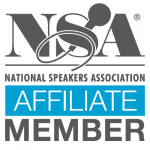I don’t think you’d find many who would argue against Apple being one of the most important corporations in the past decade. They transformed the electronics landscape when they released the first-gen iPhone in 2007—and they are poised to redefine tech culture once more.
The long-fabled, previously announced Apple Watch will be featured during Apple’s upcoming event on March 9th, reportedly debuting expanded features and functionality, and—rumor has it—a release date. Apple’s secretive events are always massive media fodder, but with the Apple Watch taking center-stage, this one holds added intrigue.
Since it’s official move from rumor to reality, critical and public opinion have remained varied on whether the world is ready—or needs—a smartwatch. Google Glass was once heralded as the new frontier in wearable technology, but now widely regarded as an ambitious endeavor, but a failure. The difficulty with wearables is the multi-layer balancing act between functionality and fashionable. Consumers want a product that works, and works well, but they also want to look cool while wearing it. This may have played a large role in the downfall of Google Glass.
The Apple Watch is another story, however. With the explosion of the fitness-tech market in recent years, Apple is releasing their smartwatch at a time when wearables are cool, and the consumer base exists and is thriving. As long as the updated functions revolve around lifestyle, health and fitness—and not just a smartphone on your wrist—these things will fly off the shelves, and further increase Apple’s tech dominance.
Heartrate and blood pressure monitors, GPS for location services and slip-and-fall alerts will make the Apple Watch a landmark device, specifically for older generations. It has the potential to revolutionize the healthcare industry in the same way the iPad did (another device predicted to fail which is now a ubiquitous aspect of society).
The grapevine has Apple releasing their smartwatch in April, and we will certainly know more once Tim Cook takes the stage next Monday to unveil the final product.





